Clemson Rural Health Innovation
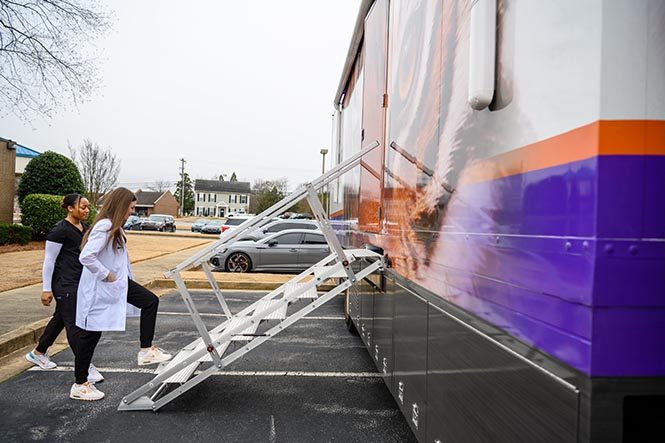
Connecting Rural Communities
Innovation is critical to Clemson Rural Health’s mission. We work with a variety of project sponsors, community organizations, and governmental agencies to bring cutting edge programs and services to rural and underserved outcomes. The thread that ties each of our projects together is the goal of transforming health outcomes through reducing premature death, decreasing unecessary hospitalizations and improving quality of life.
Improving Food Security
One in ten South Carolinians regularly faces hunger. Clemson Rural Health collaborates with local FoodShare sites at each of our hub clinics to complement grant-funded nutrition programs with bimonthly boxes of produce. These boxes are prescribed by our medical providers to patients at risk for metabolic conditions and chronic disease.
Clemson Rural Health distributed 890 produce boxes in fiscal year 2023.
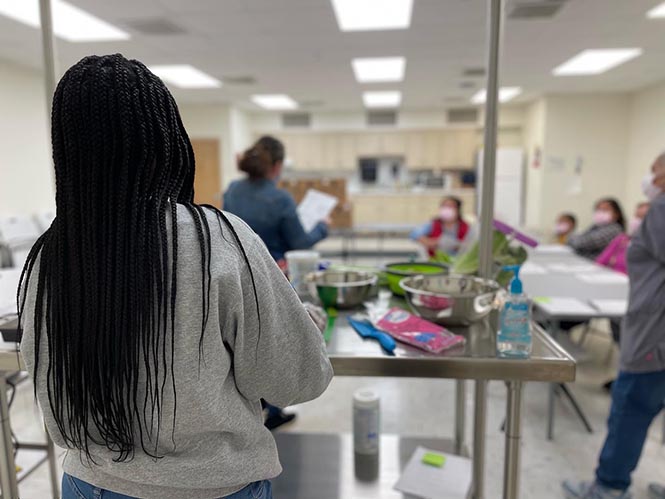
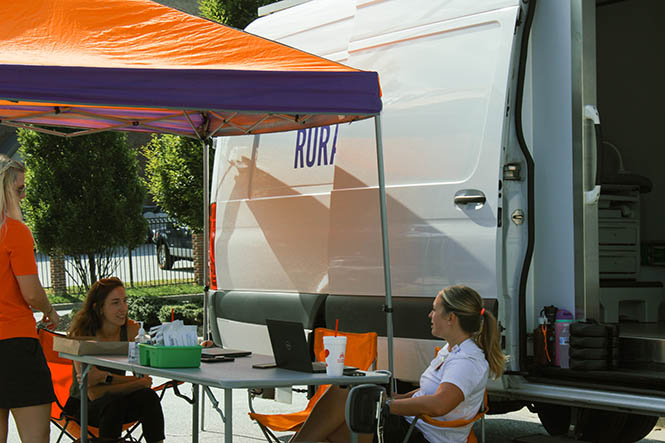
Eradicating Hepatitis C
There are approximately 35,600 people living with Hepatitis C in South Carolina. While this disease is curable, many continue to live with the long-term health effects due to lack of access to testing and treatment. Clemson Rural Health, the Clemson Center for Public Health Modeling and Response, and Prisma Health have worked together on a project implementing a novel mobile health clinic model for testing and treating high risk populations, let by nurse practitioners.
This program screened 509 South Carolinians in fiscal year 2023.
Innovating Diabetes Management
Diabetes is one of the leading causes of death in South Carolina. Clemson Rural Health is committed to finding new and innovative care delivery models to improve access to care for those living with diabetes.
This includes Manage Together, a comprehensive intervention for women funded by the BlueCross BlueShield of South Carolina Foundation to support the goals of Diabetes Free SC. Manage Together connects patients with nurse practitioners, registered dietitians, group education classes, cooking demonstrations, produce prescription boxes, preconception counseling, a remote patient monitoring technology.
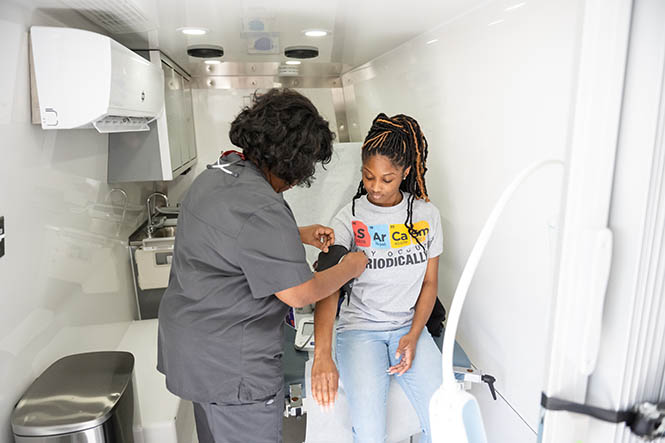
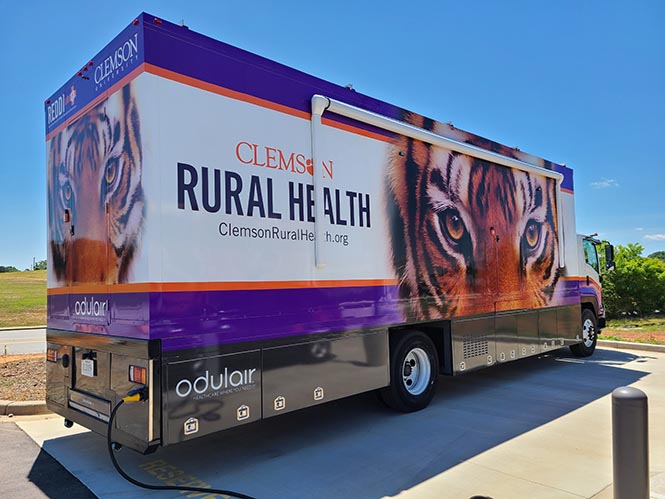
Detecting Cancer Early
As a member of SCDPH’s Best Chance Network, Clemson Rural Health provides comprehensive cervical and breast cancer screenings and education to South Carolina women. In 2023, we teamed up with the Colorectal Cancer Prevention Network and the South Carolina Cancer Alliance to provide men’s cancer screenings at each of our clinical sites.
Remote Patient Monitoring
Telehealth services have dramatically increased around the state, and with it the need for innovative technological strategies in the patients home. Remote patient monitoring (RPM) allows medical providers to lend patients health tracking equipment that sync automatically with a health monitoring application on the patients’ devices. Health care professionals are then able to regularly track health outcomes and receive alerts when patients report levels that put them at risk.
Clemson Rural Health plans to track data and health outcomes related to RPM in order to inform future policy and practice around the state.

Collaboration
We are thankful to Clemson University as well as our statewide and national partners and collaborators for their support in empowering Clemson Rural Health to help continue to meet the needs of South Carolinians.
